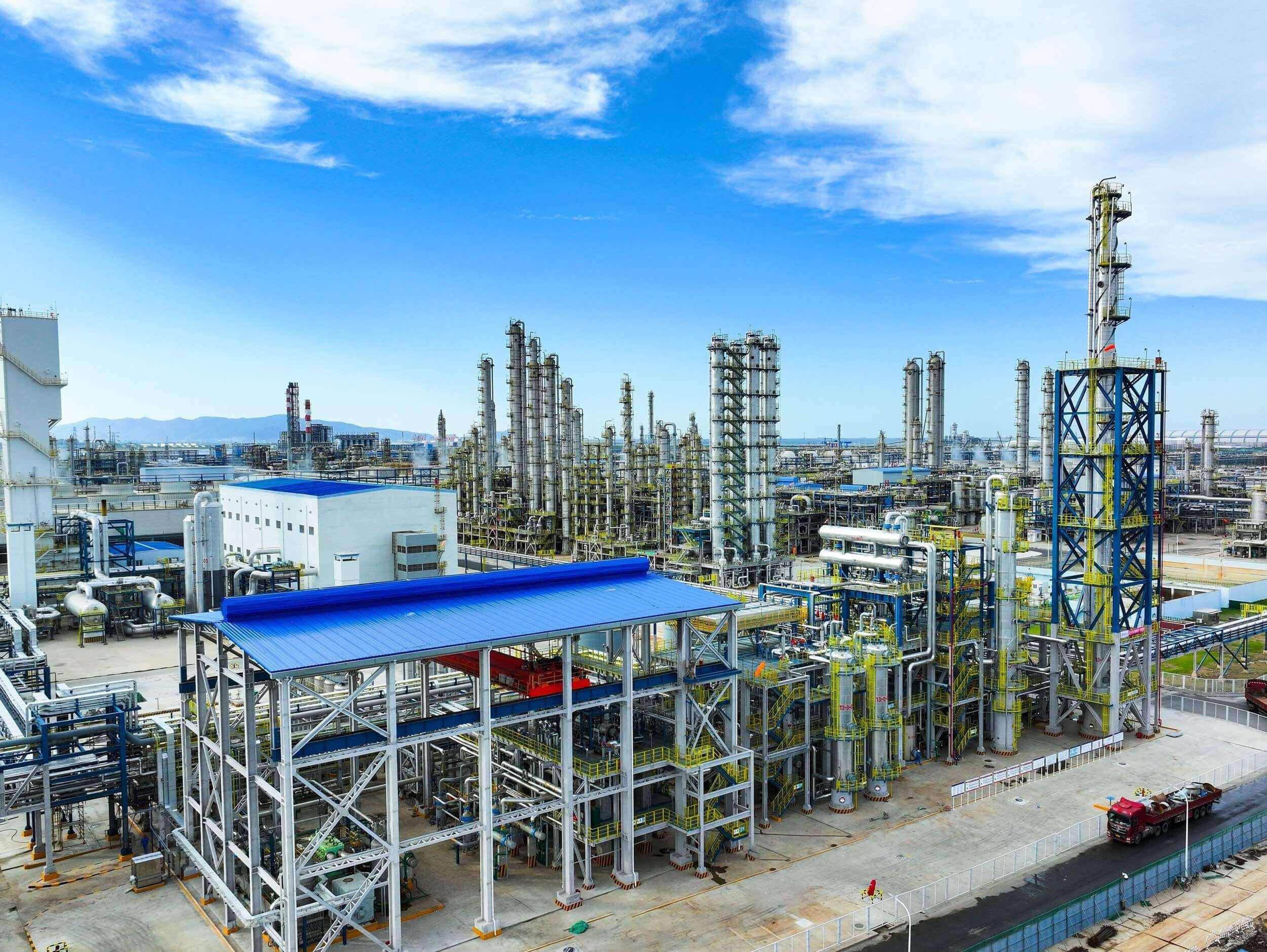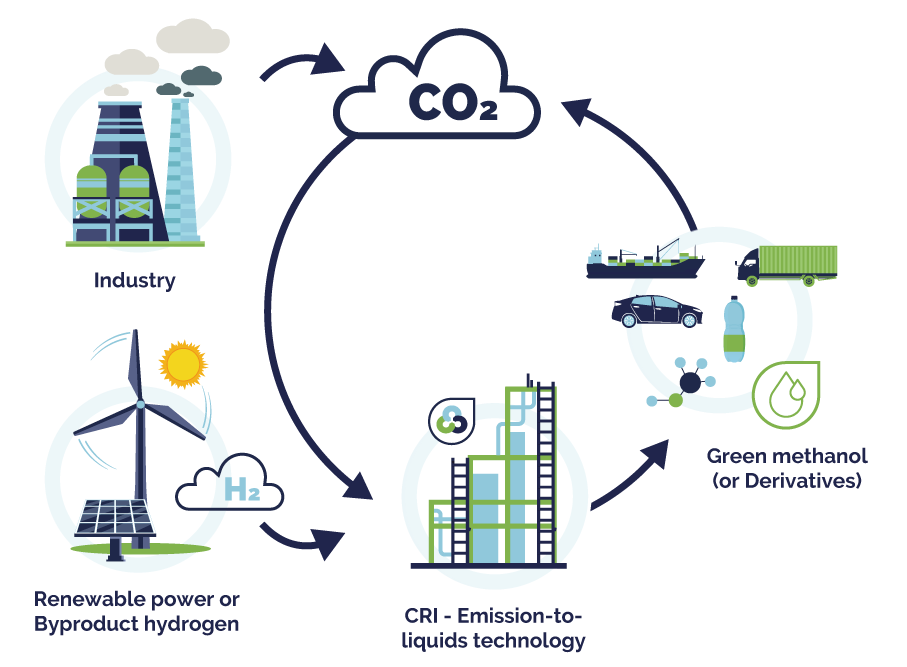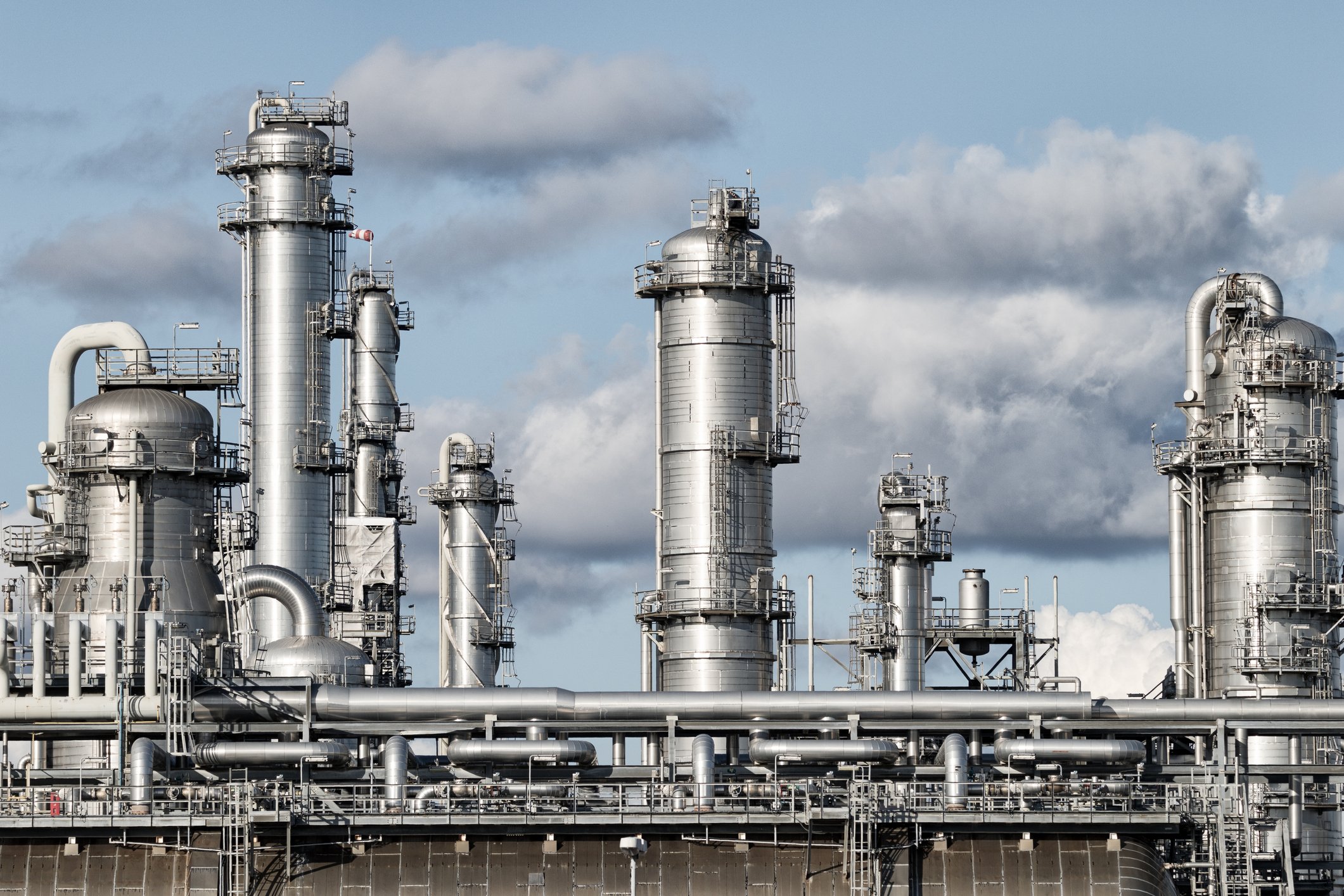
INDUSTRIES
Enabling Decarbonisation with Renewable Methanol
Many industrial processes produce CO₂ as a waste stream offgas. All operators are under pressure to reduce and eliminate the quantity of CO₂ they release.
At the same time carbon is an important building block for many of the essential goods in a modern economy.
The rapid growth in the deployment of renewable energy resources is essential to transition away from the use of fossil fuels.
In order to achieve our goals we will need to combine the deployment of renewable energy with the capture and utilization of carbon.
In all these cases, CRI, through the production and use of renewable methanol, can play an enabling and accelerating role in decarbonisation - reducing additional atmospheric carbon and enabling a circular economy.
CO2 Emission Sources
All sectors have different paths to greater sustainability when considering carbon emissions. Some sectors can re-engineer operations to reduce CO₂ emissions, for others this is much more challenging. CRI can help industries decarbonise through green methanol production by recycling carbon emissions and reducing dependence on fossil-based carbon.
Chemicals and Plastics
Renewable methanol is chemically identical to methanol derived from fossil sources. It enables producers of chemicals that contain carbon or use intermediates that contain carbon, to decarbonise, using their existing processes and infrastructure.
Renewable Energy and Hydrogen
Renewable energy is often available far from where it can be used and production of renewable energy is often not steady over time. Efficient storage and transportation are required. eMethanol is high density, can be transported cheaply, and stored at low cost for a long time, increasing the viability of renewable energy projects.
eFuels in Marine, Aviation and Transportation
There are some 1.4 billion internal combustion engines in the world economy, connected by a huge, established supply chain infrastructure. eFuels can replace fossil fuels more quickly and at a lower transition cost than other options offering a viable route to decarbonisation.
This is electrification by another route and is led by hard-to-decarbonise sectors such as aviation and marine.
Renewable Methanol
CRI was the first company in the world to make renewable methanol at industrial scale - over 10 years ago. CRI is also the first company in the world to realise multiple renewable methanol projects at a scale of over 100,000 tonnes per year of methanol produced. We are working in North and South America, Europe, Africa, Asia and Australasia to bring more new green methanol projects onstream, bringing together industrial emission sources, methanol consumers, renewable energy and hydrogen project developers, engineering contractors and sustainable investors.




